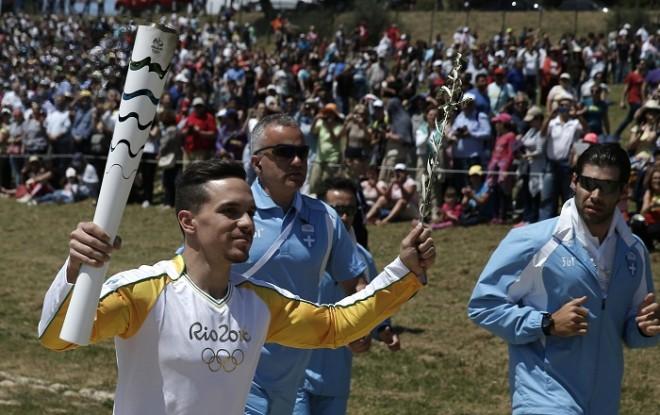
The 2016 Rio Olympics torch has been lit at Ancient Olympia in Greece, the birthplace of the games. The torch signifies peace, humanity and friendship. The International Olympic Committee (IOC) and Rio Organising Committee members were present during the ceremony.
The torch was lit by actor Katerina Lehou, using sun's rays, with the help of a concave mirror on Thursday. The torch will exchange a host of hands before the journey culminates during the opening ceremony at Maracana Stadium in Rio on Aug. 5.
Greek gymnast, Eleftherios Petrounias, who was the first torchbearer, received the torch from Lehou and handed it to former Brazil volleyball player Giovane Gavio.
However, the flame is only expected to reach the host country Brazil on May 3, as it will traverse through Greece for six days. Brazilian officials will receive the torch in Athens. There is a stopover in Switzerland as well, and only then will the flame reach Brazil.
The torch will go through as many as 500 cities in Brazil. Around 12,000 torch-bearers will carry the prestigious flame amid high security. The flame will cover immense miles by air (10,000) as well as road (12,000) around Brazil.
Though Brazil has been troubled with various events like corruption and the Zika virus outbreak, with the latter threatening the Rio Olympics as well, IOC President Thomas Bach believes the quadrennial event will bring 'hope in troubled times.'
"These Olympic Games will be a message of hope in troubled times — and indeed the flame will carry this message into all corners of Brazil and, indeed, all the world," he said. "Despite the difficulties that Brazil is facing today, the flame is a timeless reminder that we are all part of the same humanity," AP quoted Bach as saying.

















